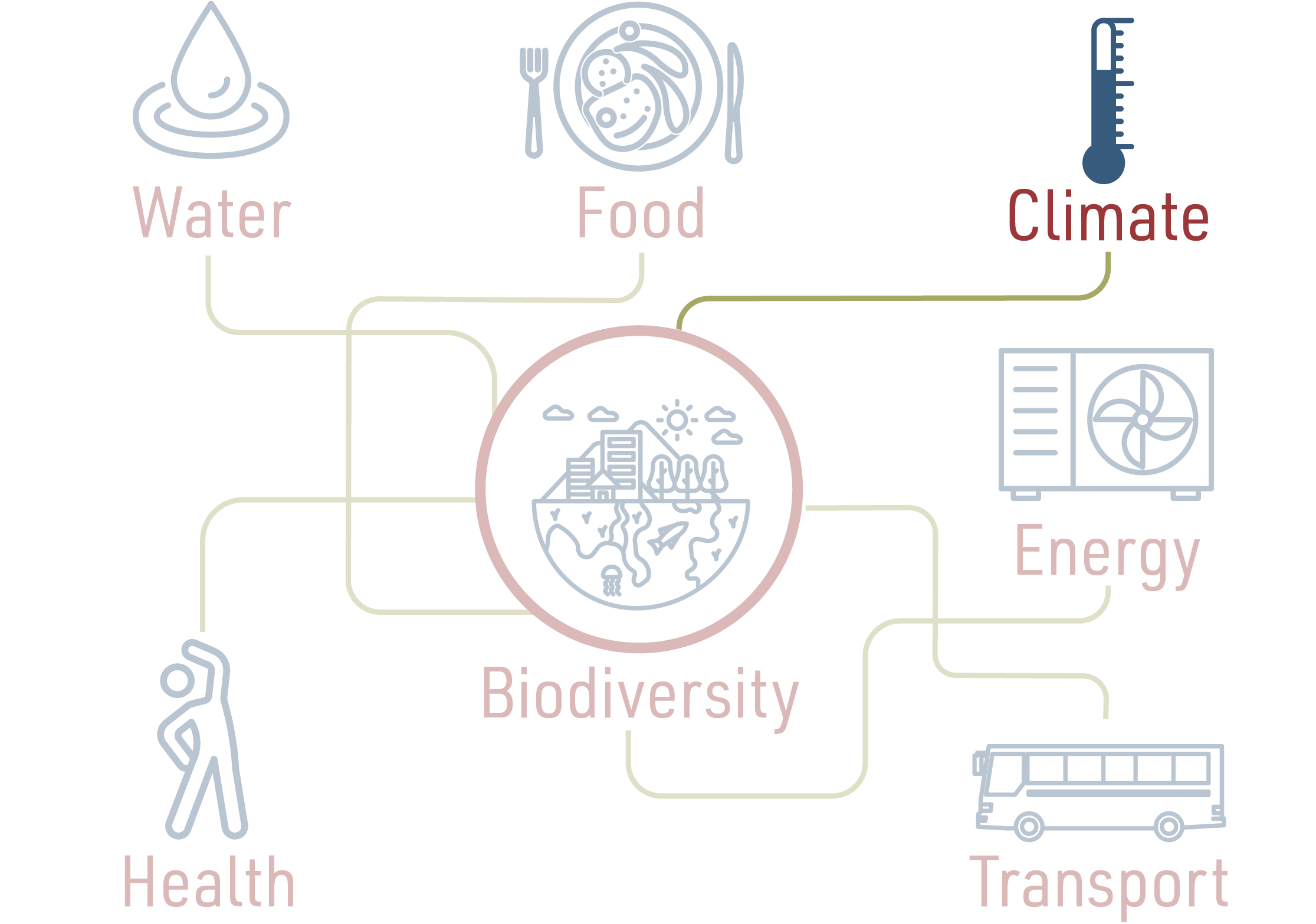
The biodiversity nexus: climate
The Earth’s climate affects all elements of the biodiversity nexus (water, food, energy, transport, health, and biodiversity). A hospitable climate is fundamental to life on Earth and variations in climate across the globe have influenced the distribution of biodiversity and the provision of food, water, health, energy, and transport. For example, the climate profoundly shapes our ability to cultivate food, and weather and climate variability plays a fundamental role in the crops and varieties grown within different climatic regions.
Human Activity and Climate Change
Human activities directly impact the climate and thus promote climate change, most notably through the emission of greenhouse gases from the use of fossil fuels. The effects of human-caused climate change are already being seen, including melting glaciers, intense heat waves, and increased wildfires. These have both direct and indirect effects on the biodiversity nexus, such as crop failure due to extreme heat, loss of biomass for energy production, and the loss of habitats for biodiversity. These effects will only worsen as long as we continue to add greenhouse gases to the atmosphere.
We must urgently change our reliance on fossil fuels and high-carbon-emitting industries to protect biodiversity and allow life to flourish in generations to come.
Related articles
The climate team
-

Heli Saarikoski
Finnish Environment Institute
-

Mara de Pater
Dutch research institute for transitions
-

Zuzana Harmáčková
CzechGlobe
-

Simon Vaňo
CzechGlobe
-

Julia Leventon
CzechGlobe
-

Romana Jungwirth Březovská
CzechGlobe
-

Elizabeth Díaz General
Karlsruhe Institute of Technology (KIT)
-

Joanna Raymond
Karlsruhe Institute of Technology (KIT)
-

Marina Venâncio
The UN Environment Programme World Conservation Monitoring Centre (UNEP-WCMC)
-

Anita Lazurko
UK Centre for Ecology & Hydrology (UKCEH)







Today, we are witnessing an alarming decline in global biodiversity: more than a million species are threatened with extinction and many critical ecosystems destroyed or severely degraded. Global ecosystem collapse may be closer than we think if we fail to mitigate these trends. The implications would be far-reaching and catastrophic, extending beyond ecological concerns. So how does biodiversity loss affect our society?